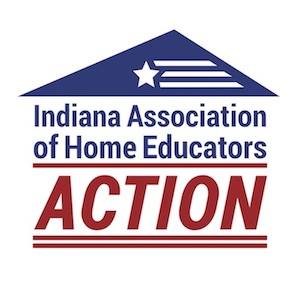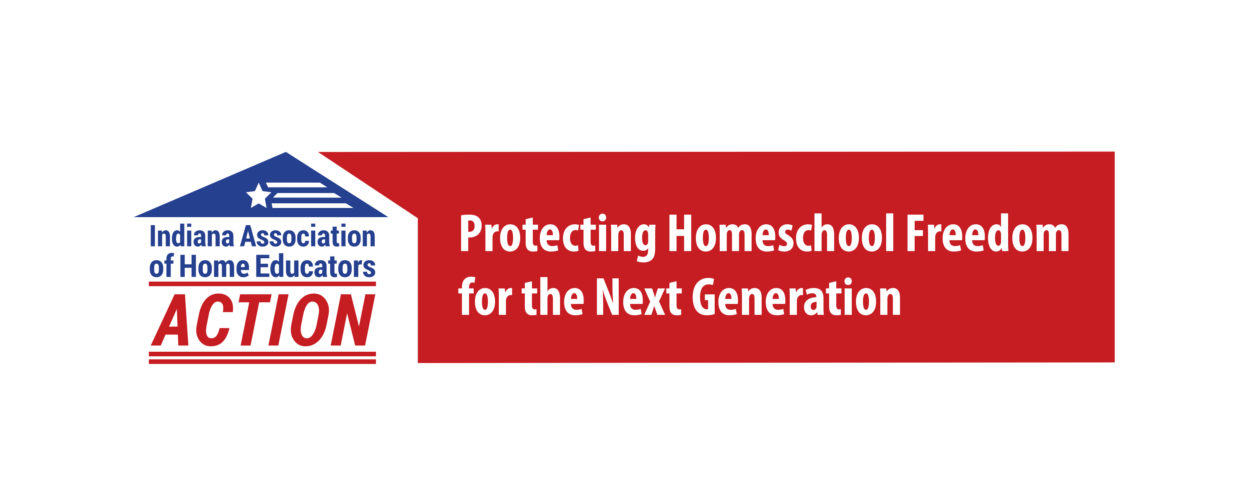The 2016 session of the Indiana General Assembly ended on March 10. This was a “short” session, and there 831 bills introduced. The legislature was cautious about passing bills with a high fiscal note, so some that would typically move did not this session. IAHE tracked over eighty bills of interest. The House and Senate Education Committees heard a total of thirty-nine bills and two resolutions in the ten weeks that comprised this legislative session. Four of them were of particular interest to IAHE.
Education Matters • HEA 1330 contains language that IAHE included with the assistance of Governor Pence’s office. IAHE is grateful that the House Education Committee Chairman, Robert Behning (R–Indianapolis), carried the bill for us.
IAHE felt it was necessary to introduce this legislation due to the overreach of the Indiana Department of Education (IDOE). In September 2015, a memo from the IDOE was sent to Superintendents and principals across the state that required students enrolled part-time in the public school to take ISTEP. Prior to this time, it was not required.
Indiana Code states the purpose of ISTEP+ is:
1) to assess the strengths and weaknesses of school performance; 2) to assess the effects of state and local educational program; 3) to compare achievement of Indiana students to achievement of students on a national basis; and 4) to provide a source of information for state and local decision makers with regard to educational matters, including . . . the overall academic progress of students, the need for new or revised educational programs, the need to terminate existing programs . . . . In addition, IC 20-32-5-6 mandates that ISTEP scores “measure student achievement relative to the academic standards established by the state board . . . .”
Indiana case law affirms that local school corporations have the discretion to allow or deny part-time participation. Indiana law states very clearly that non-accredited, non-public schools are “not bound by any requirements set forth in IC 20 or IC 21 with regard to curriculum or the content of educational programs offered by the school” and that this does not prevent a student from that school in “enrolling in a particular educational program or participating in a particular educational initiative offered by an accredited public, nonpublic, or state board approved nonpublic school…”
Since the purpose of the ISTEP program is designed to “provide a source of information for state and local decision makers with regard to…the overall academic progress of students…the need for new or revised educational programs…the need to terminate existing education programs…student readiness for postsecondary school experiences…(and) diagnosing individual student needs” it cannot be applied to part-time students who are not enrolled in the subjects being tested.
If they are testing homeschool students in math or English and the student is only taking an art class, how does that test the student on how well the public school is teaching those subjects when those subjects are being taken at home?
IAHE believed it was bad policy to require home educators who are enrolled part-time, such as in one non-academic class, to take ISTEP+ or other future similar assessments designed to evaluate the school, curriculum, and testing methods.
The language in HEA 1330 states, “(c) A student who attends a school described in subsection (a) who also enrolls in a particular educational program or initiative as permitted under subsection (b) may be offered the opportunity to participate in state standardized assessments, but such participation is not required.”
This language allows “home rule” where the school may decide whether or not a student has access to a class and whether or not to offer the test. What has changed is that the student can no longer be required to take the state-wide assessment. HEA 1330 was signed by the Governor.
 2.) Various Education Matters • SEA 93 is a bill that IAHE was monitoring. In the final weeks of the session during Second Reading in the House, a floor motion was amended into SB 93. Since it was in Title 16 and not Title 20, it included home schools. Here is the language:
2.) Various Education Matters • SEA 93 is a bill that IAHE was monitoring. In the final weeks of the session during Second Reading in the House, a floor motion was amended into SB 93. Since it was in Title 16 and not Title 20, it included home schools. Here is the language:
Testing of Water in School Buildings
Sec. 1. As used in this chapter, “school building” means any building used for the classroom instruction of students in any grade from kindergarten through grade 12. The term includes buildings used by all public schools and private schools.
Sec. 2. Every school building shall be supplied with safe, potable water from:
(1) a source; and
(2) a distribution system; approved by the commissioner of the department of environmental management, the state health commissioner, or the local board of health or county health officer having jurisdiction where the school building is located.
Sec. 3. (a) At least once in each period of two (2) calendar years, the water available in each school building for drinking purposes shall be tested to ensure that it is healthful and free of contaminants, including lead, that could be injurious to human health.
(b) The testing required by subsection (a) shall be conducted by: (1) the commissioner of the department of environmental management; (2) the state health commissioner; or
(3) the local board of health or county health officer having
jurisdiction where the school building is located.“.
Senate Education Chairman Dennis Kruse (R-Auburn) and Representative Robert Behning worked with IAHE to include an amendment in conference committee to exclude home schools. The final language excluded all private schools.
SEA 93 was signed by the Governor.
3.) Various Education Matters • HEA 1005 After a sexual abuse incident at a brick and mortar non-accredited, nonpublic school, the legislature desired to require expanded child protection index background checks for adults with ongoing contact with students in all schools within the scope of their employment.
SECTION 3. IC 20-26-2-1.3 IS ADDED TO THE INDIANA CODE AS A NEW SECTION TO READ AS FOLLOWS [EFFECTIVE JULY 1, 2016]: Sec. 1.3.“Expanded child protection index check” means:
(1) an inquiry with the department of child services as to whether an individual has been the subject of a substantiated report of child abuse or neglect and is listed in the child protection index established under IC 31-33-26-2;
(2) an inquiry with the child welfare agency of each state in which the individual has resided since the individual became eighteen (18) years of age as to whether there are any substantiated reports that the individual has committed child abuse or neglect; and
(3) for a certificated employee, an inquiry with the department of education or other entity that may issue a license to teach of each state in which the individual has resided since the individual became eighteen (18) years of age as to whether the individual has ever had a teaching license suspended or revoked.
The final language included all schools that have one or more employees. House Education Chairman Robert Behning (R-Indianapolis), worked with IAHE to exempt parents teaching their own children.
IAHE recommends that even if you are not required by law to have an expanded background check for anyone teaching your children in a co-op, it would be prudent to do it. Many co-ops already do background checks.
Home Educators’ Questions Regarding HEA 1005 Receive Answers from HSLDA
These are answers from HSLDA regarding HEA 1005 (formerly SB 334). In their opinion, these answers are accurate. Please seek counsel from HSLDA for specific questions.
1.) If a family hires a teacher such as a piano teacher, does it require a background check? NO
2.) What if a group of parents pay an individual to teach a class such as a foreign language? Or what if the teacher is not paid, but there is a fee for the class (supplies, facility fees). NO
3.) How easy it is to transfer a background check? I have to get one for another organization. Could that then count for any other situation, or would the individual groups need to have a new one done? HSLDA does not have an answer, but suspects it will not be problem. The background check is something that needs to be updated. Schools will have to put it in their policy regarding when they must be updated. A school could also decide to accept one that has been done in the last “x” period of time.
4.) If I hired a family member such as a grandparent to tutor my children, do I then need to run a background check? NO
5.) Do any/all tutors need background checks? NO
6.) Does this bill apply to independent contractors? NO
7.) Is a co-op a school? A co-op is not a school unless they desire to be one. If they operate 5 days a week, 6 hours a day then HSLDA would expect the state to consider them to be a school, but it might still be possible that they aren’t. A normal co-op that operates 1-2 days a week shouldn’t have any trouble.
8.) If anyone is passing themselves off as a school, with employees, they must comply.
HEA 1005 was signed by the Governor.
4.) Next Generation Hoosier Educators Scholarship • HEA 1002 allows for an academic state scholarship to attract and retain eligible applicants to the teaching profession. IAHE requested home educators be included in the bill. Speaker of the House, Brian Bosma (R-Indianapolis) agreed to include homeschoolers. IAHE believes it would give increased credibility to homeschool diplomas since homeschooled graduates would be on a level playing field with public school graduates when applying for this scholarship. Since the requirements for this scholarship occur after graduation, we saw no reason to omit homeschoolers. HEA 1002 was signed by the Governor.
*This post does not constitute legal advice. For legal questions, contact HSLDA.
